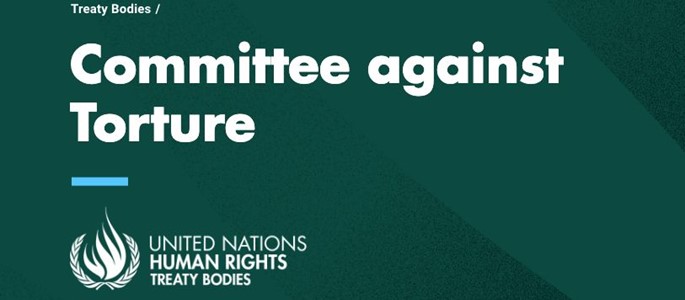The UN Committee Against Torture criticizes Denmark regarding abused migrant women and victims of human trafficking
The committee also recommends changes regarding Ellebæk, Tålt Ophold, reassessments of asylum cases and lack of torture examinations
The committee has just issued its assessment of whether the Danish state complies with the UN Convention Against Torture. The previous report was from 2018, and several of the points of criticism are repeated. In Refugees Welcome we are pleased to note that the committee has listened to many of the points that we added to the joint shadow report which was submitted to the committee in collaboration between a number of Danish NGOs.
Here is our summary of the criticisms regarding refugees and asylum seekers:
• The committee warns against the use of diplomatic assurances, both when it comes to expulsions and deportations, to countries where there may be a risk of torture or inhumane treatment, or where there may be a risk of chain refoulement.
• The committee recommends that the government revise the law on the externalization of asylum processing to third countries and fully comply with international standards and guidelines for cases related to migration.
• The committee urges the Danish state to ensure that reassessment of asylum status is only carried out on the basis of new information that indicates a fundamental, stable and durable change in conditions in the country of origin, and that protection in the country of origin is effective and available.
• The committee asks the government to revise the scheme for Tolerated Stay and ensure that people who are under this scheme for a longer period of time can have access to work and can freely choose their own place of residence.
• The committee expresses strong concern about Ellebæk and the departure center Kærshovedgård:
The committee notes that the two places are administered by the Prison and Probation Service, staffed by prison officers, and that many of the living conditions in Ellebæk, e.g. the use of mobile phones and disciplinary sanctions such as the use of solitary confinement, are regulated in the same way as detention under the Administration of Justice Act. The committee is also concerned about criminal sanctions against people who do not spend the night at departure centers in violation of current regulations. The Committee expresses further concern that convicted criminals awaiting deportation after serving their sentence are held together with persons under administrative deportation, e.g. persons with rejected asylum applications and persons awaiting asylum appeals. The committee expresses particular concern about the situation of children, who may also be subject to administrative detention, and women who are administratively detained in the same center as convicted criminals, including of the opposite sex.
The Danish state should ensure that detention with a view to deportation is proportionate in light of the individual's circumstances and for as short a period as possible, and should intensify its efforts to expand the use of non-custodial measures. The State should also ensure that the regime and conditions of immigration detention are designed in a way that suits the status of people who have not been sentenced and that people with a criminal history are separated from those without.
• The committee expresses criticism that the Danish state investigates and judges a very low number of cases of human trafficking. In addition, there is cause for concern about the high threshold of proof, and the derived effects on the residence status of victims of human trafficking, including in particular their limited access to asylum and their risk of refoulement. The state should ensure access to adequate protection and support, including temporary residence permits of appropriate duration, for all victims of human trafficking, regardless of their willingness to cooperate with authorities, including in connection with legal proceedings against the perpetrators.
• The Committee is concerned that victims of intimate partner violence may be reluctant to leave these relationships when their residence permit has been obtained on the basis of family reunification, for fear of losing their right to remain in the country. The Committee notes that although there is legislation in place which should cover such situations, difficulties in proving the violence may force victims to remain in the relationship, as they may otherwise risk deportation.
The State Party should ensure that victims have access to legal aid, safe places of refuge and the necessary medical care and psychosocial support and are not pressured to remain in situations of abuse as a result of their migration status.
As a member, you help us
to keep international focus on
conditions for refugees in Denmark


